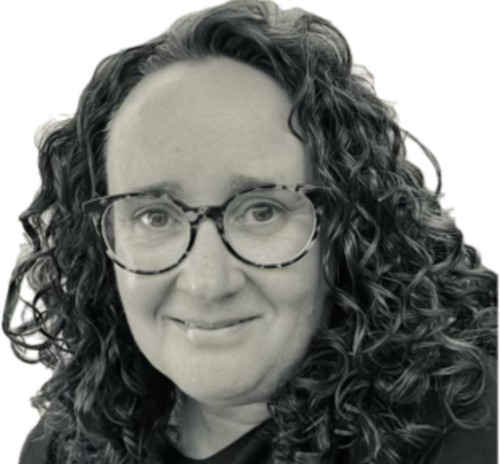Boosting Egyptian medical education with Manchester expertise
Two Egyptian universities are collaborating with The University of Manchester to enhance their medical training programmes and equip students with the skills they need to work as a doctor internationally.

Two decades ago, medical education in Egypt followed a traditional model, with doctor training places for home students funded by the government.
A collaboration between Mansoura University and The University of Manchester, which began in 2006, sought to expand medical education in Egypt. By integrating innovative teaching and learning methods used in the UK, the partnership aimed to enhance medical training at Mansoura while also attracting a diverse cohort of international students.
The Mansoura-Manchester Medical Programme has since grown significantly. In 2006, the programme welcomed its first cohort of 60 students. Today, it enrols nearly 400 students annually, with around half coming from outside Egypt. Students from 45 different countries - including those from crisis-affected regions - have benefited from the programme, gaining access to high-quality medical education through scholarships offered at Mansoura.

Professor Joanne Hart
Joanne is a Professor of Health Professional Education and Head of the Division of Medical Education at Manchester.
Mansoura's commitment to training future doctors plays an instrumental role in ensuring continued healthcare services both locally and internationally.
Enhancing medical teaching and learning
The Mansoura-Manchester Medical Programme provides students with an integrated curriculum designed to prepare them for the evolving demands of the global healthcare sector. Unlike traditional Egyptian medical courses, it encourages independent learning and critical thinking through enquiry-based education.
"Our colleagues in Mansoura have embraced our curriculum evolutions over many years, meaning that they benefit from cutting edge medical education innovations, for example clinical debrief. We know that graduates of the programme feel that this international gold standard education means they are competitive candidates for jobs across the globe," says Joanne Hart, professor of health professional education at Manchester.
"We also learn from our colleagues in Mansoura; of particular note are the way the students engage in supporting their local communities, and the very warm relationships between staff and students."
Professor Hart highlights how the partnership has grown over time, reflecting the strong relationship between the two institutions.
"Our collaboration with Mansoura has evolved over many years - there are multiple strands of partnership, and all are very highly valued by the Division of Medical Education and The University of Manchester," she says.
"Our thriving longevity, our mutual respect and learning, and the way in which we work together to enhance medical education for Egypt and internationally are all important to us individually, as well as part of our core ethos in the University. We look forward to our partnership continuing long into the future."
The programme takes the best approaches to medical education seen globally, putting the patient first and emphasising competencies. This ensures graduates are well-equipped to diagnose and treat patients in various healthcare settings.
The Manchester team visited Mansoura in December 2024 to attend the latest cohort's graduation ceremony and deliver competency-based education workshops as part of a British Council-funded research initiative. This visit highlighted the University of Manchester's ongoing commitment to advancing medical education in Egypt and strengthening international partnerships.

Professor Ashraf Shoma, Dean of the Faculty of Medicine at Mansoura University, emphasises the benefits of international collaboration.
"International partnerships such as this bring enormous benefits for our students, staff, and local populations. Our graduates are able to join a global workforce that can meet patient needs, both here in Egypt and overseas," he says.
Benefits for all
The impact of this collaboration extends beyond the classroom. The programme helps to address the global shortage of healthcare professionals, a challenge recognised by the World Health Organisation (WHO).
WHO predicts a deficit of 10-14.5 million healthcare workers by 2030, with Africa and the Middle East facing some of the most severe shortages. The Mansoura-Manchester Medical Programme is actively contributing to solving this issue by training the next generation of doctors and medical professionals.
By providing an education that is both globally relevant and locally applicable, the programme ensures graduates are prepared for work in diverse healthcare environments. Students can choose to continue their careers in Egypt or take advantage of international opportunities.
Future collaborations
Building on the success of the Mansoura partnership, The University of Manchester has also established a collaboration with Alexandria University, launching a joint award medical programme that welcomed its first cohort of students in 2021. This initiative follows the Manchester curriculum while ensuring students meet both UK and Egyptian medical training requirements.
The Mansoura collaboration has also inspired new initiatives in medical education, including a project focusing on undergraduate dentistry teaching and learning. Meanwhile, The University of Manchester continues to explore additional partnerships with institutions in the Middle East to further expand its global impact on healthcare education.
With a track record of successfully implementing high-quality medical training in different cultural and educational contexts, Manchester remains committed to developing innovative medical education programmes that prepare students for the challenges of modern healthcare.
As this partnership continues to thrive, it stands as a testament to the University's dedication to advancing medical education on a global scale and ensuring that healthcare professionals are well-equipped to meet the needs of patients worldwide.
Learn more about Manchester's global health collaborations.
